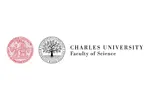

Faculty of Science, Czech Republic (the)
Visit course webpageStimulator of interferon genes (STING) is a protein that mediates the production of type I interferons in response to the cytosolic DNA. It can also influence the expression of major histocompatibility complex class I (MHC-I) molecules. STING agonists may therefore be used in cancer immunotherapy to enhance anti-tumor immunity. However, in tumors associated with human papillomaviruses (HPV), STING signaling can be inhibited by the viral E2, E5, E6, and E7 proteins. The aim of this project is to study the activation of the STING signaling pathway in mouse and human tumor cell lines producing HPV proteins and to evaluate the inhibitory effect of these proteins on the activation of STING-mediated immune responses. As a possible enhancement of STING activation, inhibition of aspartate b-hydroxylase will be tested because it may reduce the inhibitory effect of the E7 oncoprotein. An anti-tumor effect of combination immunotherapy, including DNA immunization against the E7 oncoprotein using a gene gun, will be tested in mouse tumor models characterized by different levels of MHC-I expression and different modes of MHC-I downregulation. Tumor microenvironment will be analyzed to elucidate mechanisms involved in immunotherapy. The results obtained may help to improve immunotherapy of HPV-driven tumors with reduced MHC-I expression.
Five relevant publications of the research group:
Piatakova A, Polakova I, Smahelova J, Johari SD, Nunvar J, Smahel M. Distinct responsiveness of tumor-associated macrophages to immunotherapy of tumors with different mechanisms of major histocompatibility complex class I downregulation. Cancers 2021; 13: 3057.
Lhotakova K, Grzelak A, Polakova I, Vackova J, Smahel M. Establishment and characterization of a mouse tumor cell line with irreversible downregulation of MHC class I molecules. Oncol Rep. 2019; 42: 2826-2835.
Grzelak A, Polakova I, Smahelova J, Vackova J, Pekarcikova L, Tachezy R and Smahel M: Experimental combined immunotherapy of tumours with major histocompatibility complex class I downregulation. Int J Mol Sci 2018; 19: 3693
Smahel M, Polakova I, Duskova M, Ludvikova V, Kastankova I. The effect of helper epitopes and cellular localization of an antigen on the outcome of gene gun DNA immunization. Gene Ther 2014; 21: 225-32.
Smahel M, Sima P, Ludvikova V, Marinov I, Pokorna D, Vonka V. Immunisation with modified HPV16 E7 genes against mouse oncogenic TC-1 cell sublines with downregulated expression of MHC class I molecules. Vaccine 2003; 21: 1125-36.
Research group
Laboratory of Immunotherapy - Immunization against Tumors Caused by Human Viruses
Learn more about Activation of STING signaling in tumors associated with human papillomaviruses, PhD - at Faculty of Science
Visit course webpageContact Faculty of Science to find course entry requirements.
This text facilitates quick navigation of the various types of scholarships but does not provide a full list of rules and policies regulating this field. The granting and payments of scholarships is governed primarily by the Scholarships and Bursaries Rules of Charles University (cuni.cz/UKEN-727.html), the Rules for Granting Scholarships at FSc, and the relevant measures issued by the Dean (natur.cuni.cz/fakulta/studium/bc-nmgr/predpisy-a-poplatky/stipendia; Czech only).
Students may obtain the following scholarships:
Certain scholarships are granted to students automatically (without student applications), whereas others are granted further to an application (electronic or paper, depending on the type of scholarship). Bursaries are neither taxed nor included in stated income. You can find answers to frequently asked questions regarding scholarships on the Faculty website (natur.cuni.cz/fakulta/studium/helpdesk/faq-stipendia; Czech only).
For more information check our dedicated website.
There are 136 other courses listed from Faculty of Science. A selection of these are displayed below:
A postdoctoral position to study thermal effects in landslides Postdoc
Faculty of Science
Find out moreActivation of STING signaling in tumors associated with human papillomaviruses PhD
Faculty of Science
Find out moreSee other universities in Prague
Find out more about studying in Czech Republic (the)